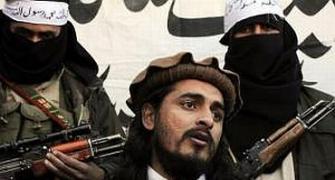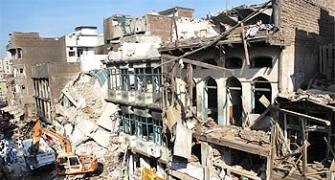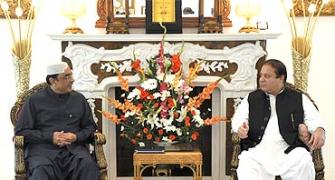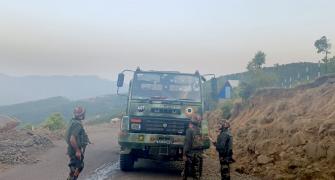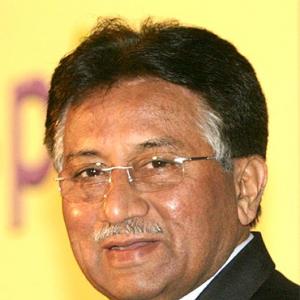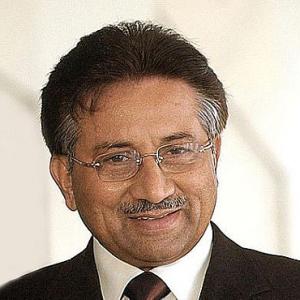Hence it comes as no surprise that many Pakistanis are nostalgic about the nine years that General Pervez Musharraf ruled the country. And making the most of the opportunity, Musharraf announced on January 3 that he is returning from self-imposed exile in London and wants his old job back. He is ready to make a comeback with his newly- formed political party in time for the next round of elections.
Late last year, prior to his announcement, Foreign Policy spoke with the former Pakistan president about what he would do, if given a second shot at ruling Pakistan. An excerpt from the conversation:
On his return to politics
I'm offering an alternative to the people of Pakistan. At this moment, they are stuck between two alternatives: the People's Party and Pakistan Muslim League-Nawaz, both of which are dysfunctional.
I call Nawaz Sharif a closet Taliban. He's a man who is -- who has been -- in contact with Taliban. He has tried his hand at leadership as prime minister twice in the past -- and he has failed. Why are we giving him a third chance to destroy Pakistan? My new party is an alternative to the people of Pakistan with the hope of changing the conditions in the state.
On Pakistan's fight against terror
One has to give the entire credit to the military, which is involved in fighting terrorism, fighting the Al Qaeda and Taliban. It has suffered about 2,500 deaths in doing so. Now, whether we can win or we are winning -- well, I think we are not losing. The important thing is not to lose there.
I think that the Pakistani Frontier Corps, which is the second-line force, needs to be reinforced substantially with more manpower and with tanks and guns to be able to maintain law and order. The Army should remain as a backup.
The Army is dealing with the Al Qaeda and Taliban in the West, and the Army has to watch the borders on the east, because the Indian military orientation is towards our border. And then when things like the floods happen, the Army again has to go for flood-relief operations. The Army is overstretched.
When the West blames the Army for not doing enough, they also blame the Inter-Services Intelligence. But the ISI itself has suffered about 250 people deaths in bombing attacks. So, on one side the Taliban are attacking them; on the other side the West thinks they are in league with the Taliban.
On security forces sympathising with Taliban
Elements who have sympathy toward the Taliban or Al Qaeda in the past were there. They must still be there. But to blame the Army or the ISI is just having a very negative impact. The Army is there doing their job. If anyone thinks that there are rogue elements at a strategic level -- at the level of the government or the Army headquarters or the ISI headquarters -- that there is an instruction being given down to cooperate with the Taliban -- this is absolutely baseless.
On Barack Obama's Af-Pak policy
I'm against this idea of setting a timeline for withdrawal from Afghanistan. We have to install a stable, legitimate government in Afghanistan before we quit the area. So, to that extent, I do not agree with what he has decided. If they were to quit, all of a sudden in 2011 or start quitting, it may lead to problems in the area -- destabilisation of the entire area.
Announcing a pullout is a bad idea because the moment you announce it, you put new forces into play. The Taliban and Al Qaeda get encouraged.
Other than that, the advice that I would certainly like to give him is to give importance to Pakistan and to be conscious of the sensitivities of Pakistan in his political dealings in the region.
On his approach to fight terrorism
We have to use the military, the political, and the socioeconomic -- a three-tiered strategy. We need to empower the ex-tribal maliks to counter Al Qaeda and the Taliban because those tribal maliks were the ones who held sway over the tribes. If the 9/11 attacks had not happened, one would have preferred elections and local government to do away with the tribal culture. But now, with the Taliban being there, we need to get that same tribal culture back and ask the tribal maliks to take charge against the Taliban and Al Qaeda.
Educating the masses in the tribal agencies, especially the women -- that is very, very important. We should introduce education into the provinces, into the tribal agencies, and get the people educated. It's a long-term strategy of transforming the tribal agencies and integrating them with the rest of Pakistan.
Let Pakistan handle its situation in Pakistan, and the Americans handle the situation in Afghanistan. All the blame for whatever is happening in Afghanistan, including the cross-border activity, is put on Pakistan. Why? Why isn't the cross-border activity blamed on the coalition forces, the Afghan National Army, the Afghanistan government -- why is it not their fault? Is Pakistan responsible for every movement across the border? Doesn't anyone else also have a responsibility, also? If Pakistan is failing to stop al Qaeda and the Taliban from going across the border, then the coalition forces, the United States, Afghan government, Afghan National Army is also failing to do that.

